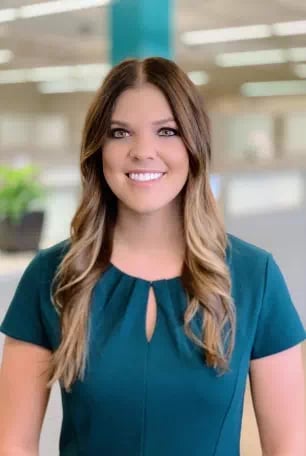The Importance of Reconciling a Practice Management System

The digital age has brought many changes to the healthcare industry, including increased automation of critical processes such as billing and payments. This automation is great for streamlining and simplifying operations. Still, it's important to remember that the processed information needs to be reconciled to bank account activity and tracked for accuracy.
What is Reconciliation, and Why is it Important?
Reconciliation, for purposes of this blog, involves comparing the information from a practice management system (PM System) to the payments received or paid in the bank account. You want to make sure the activity in the bank account matches the activity in the PM System. For example, if the PM System shows patient revenue received of $5,000, we need to verify that $5,000 was actually deposited. Your records need to match what was truly received. If they don't align, you'll need to research why.
Reconciliation safeguards the precision and validity of financial data. It helps catch errors, such as possible unauthorized changes that may have occurred during processing. It can also catch potential data entry errors and unknown fees, or it can uncover insurance payer errors/denials.
What Should You Look at When Reconciling?
Billing Reconciliation
Billing reconciliation is important as it helps identify any discrepancies between what was billed and what was received. For example, if you bill a patient or insurance company for a certain amount, they may only make a partial payment. If you don't reconcile, the bank account will only reflect the partial payment, and the books will reflect the full amount due, causing a discrepancy.
Bad Debts
Bad debts are unpaid bills that have passed the due date, either due to nonpayment or delayed payment. These need to be identified and addressed in the practice management system. For example, the practice can seek a resolution if a patient or an insurance company has not paid a bill.
Partial Payments
Partial payments are payments that don't cover the entire bill. In this case, the practice may need to reach out to the patient or insurance company to collect additional fees. Tracking and reconciling payments is important to verify accuracy and completeness.
Outstanding Bills
Outstanding bills have yet to be paid, either because they haven't been received or because of pending payment. Outstanding items can be difficult to track, but they must be identified and addressed. For example, the practice must contact a patient for a resolution if they have not paid their bill.
Streamlining Healthcare Reconciliation Processes
Traditionally, finance departments have used a manual process for reconciling accounts, such as Excel. While this can get the job done, it can be time-consuming and still result in unreconciled differences that need to be researched.
Healthcare organizations can streamline the reconciliation process using automated systems to track payments and solve discrepancies. Some electronic medical record (EMR) software can quickly identify issues in the reconciliation process and ensure accuracy. This helps reduce errors and free time for medical professionals to focus on treating patients. Automated systems also make tracking payments easier and identify any potential issues with payment processing.
Finally, healthcare organizations can ensure accuracy and compliance by using audit trails to track changes in the practice management system. These provide a record of all changes and ensure that the data in the practice management system is accurate. This helps to prevent any discrepancies from occurring in the future and ensures that billing practices remain compliant with regulations.
How to Ensure Accuracy in Reconciliation
When reconciling your bank accounts to your practice management system, here are five items to address to make sure you are taking all relevant items into account:
- Cross-check and verify all payments received
- Calculate daily billing totals from the practice management system
- Reconcile any rejected claims
- Cleared payments only
- Track all reimbursements
Whether you choose to do it manually or employ an electronic system, reconciliation is essential for any healthcare organization to have accurate financial reports. Practices need to have a system that tracks payments and reconciles discrepancies. It is more important now than ever, with the rising costs and margins depleting, to maximize the dollars received by the practice, especially when they are rightfully owed.
Contact us today if you have any questions or need assistance with your healthcare accounting processes. You can also learn more by reading our Accounting Guide for Private Medical Practices.

- Responsibility, Discipline, Maximizer, Harmony, Achiever
Lauren Duren
Lauren Duren, Client Advisory Services & Healthcare Director, began her career in 2012. Since she started as an intern with Lutz, she has developed comprehensive expertise in healthcare accounting and consulting while serving as the private practice department leader and contributing to the CAS policy committee.
Leveraging her experience in outsourced accounting and advisory services, Lauren focuses on independent medical practices. She provides strategic solutions, including provider compensation, revenue cycle optimization, and practice transition planning. Lauren values helping clients think through complex challenges to drive meaningful business improvements and develop strategies for long-term sustainability.
At Lutz, Lauren's discipline and focus enable her to deliver exceptional results in the healthcare sector. Her methodical approach to complex projects, combined with her commitment to quality technical support, has been instrumental in expanding specialized services for medical practices. Passionate about developing the next generation of talent at Lutz, Lauren also dedicates significant time to mentoring and training staff.
Lauren lives in Omaha, NE, with her husband Dylan, daughter Lilly, and their dog Blakely. Outside the office, she can be found spending time with friends and family, attending concerts, reading, cooking, and staying active through yoga and cycling.
Recent News & Insights
Financial Planning Advice for Recent College Grads
2024’s Hot Stocks Have Cooled Fast + 4.23.25
Do You Need a Family Office? 7 Aspects to Consider
Tariff Volatility + 4.7.25



.jpg?width=300&height=175&name=Mega%20Menu%20Image%20(1).jpg)
%20(1).jpg?width=300&height=175&name=Mega%20Menu%20Image%20(2)%20(1).jpg)
%20(1)-Mar-08-2024-09-27-14-7268-PM.jpg?width=300&height=175&name=Untitled%20design%20(6)%20(1)-Mar-08-2024-09-27-14-7268-PM.jpg)

%20(1)-Mar-08-2024-09-11-30-0067-PM.jpg?width=300&height=175&name=Untitled%20design%20(3)%20(1)-Mar-08-2024-09-11-30-0067-PM.jpg)
%20(1).jpg?width=300&height=175&name=Mega%20Menu%20Image%20(3)%20(1).jpg)
%20(1).jpg?width=300&height=175&name=Mega%20Menu%20Image%20(4)%20(1).jpg)
%20(1).jpg?width=300&height=175&name=Mega%20Menu%20Image%20(5)%20(1).jpg)
-Mar-08-2024-08-50-35-9527-PM.png?width=300&height=175&name=Untitled%20design%20(1)-Mar-08-2024-08-50-35-9527-PM.png)


.jpg)




